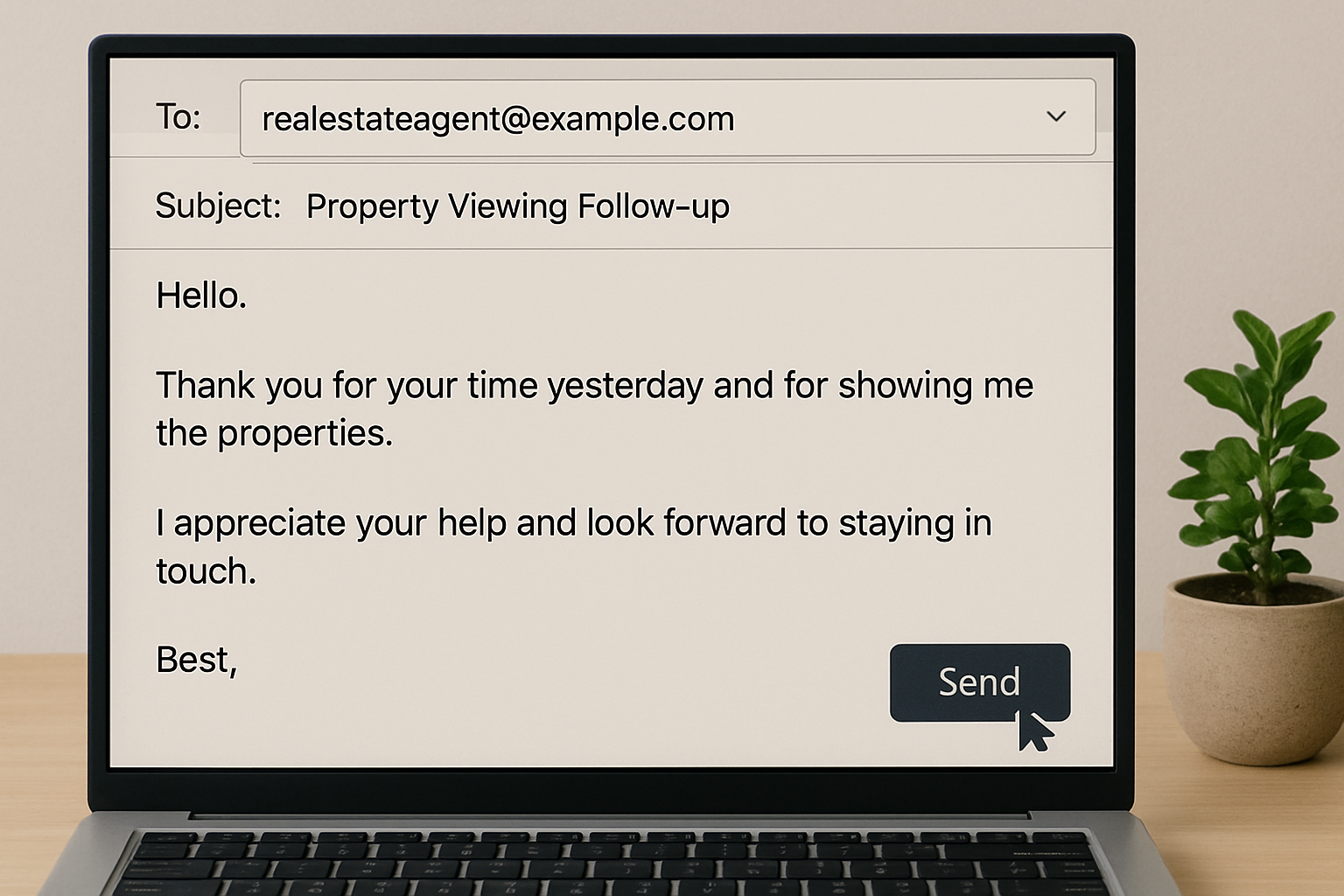For owners of rental properties, "property management fees" are an important point directly related to the profitability of rental management. If you outsource property management to a professional company, you will receive extensive support from tenant service to building maintenance, for which you will be charged a monthly property management consignment fee. This article will provide an overview of the basic structure and breakdown of property management fees, as well as a comparative explanation of the differences in market rates between the Tokyo metropolitan area and the Kansai region. We also discuss the advantages and disadvantages of outsourcing to a property management company, as well as points to consider when choosing a property management company. In addition, we will introduce INA&Associates K.K.'s philosophy and strengths (responsiveness, number of units managed, track record with ultra-wealthy clients, etc.) and clarify the points that differentiate our services from those of other companies. We hope this will be helpful in selecting the best management partner for owners seeking to maximize future earnings and reduce hassles.
What is a property management fee? General Breakdown and Structure
First, let's get the basics of property management fees. This is a fee paid when an owner outsources property management to a professional property management company, and is also called a "management fee" or "management commission. It is usually set as a fixed percentage of the monthly rent income, and is generally around 5% of the rent. For example, if you own 10 units with a monthly rent of 80,000 yen and have contracted for a 5% management fee rate, the monthly management fee would be 40,000 yen, or 5% of the total rent of 800,000 yen. Many management companies use a "rent x x%" commission system, whereby expenses are in proportion to income.
What exactly is included in the management fee? In the case of a typical full outsourcedmanagementcontract, the management company will largely handle "tenant relations" and "building management" on behalf of the tenants. The main breakdown is as follows
-
Tenant Recruitment and Contract Management: Advertising for new tenants, handling tenant previews, signing lease contracts, contract renewal procedures, attending and settling accounts at the time of contract termination, etc.
-
Rent collection agency: Collecting monthly rent and remitting it to the owner, and handling reminders for nonpayment of rent.
-
Complaint handling: Receives and handles complaints from tenants about defective facilities, neighborhood problems, etc.
-
Maintenance and management of building facilities: Periodic patrols and cleaning, arrangement of statutory inspections, and repair arrangements in the event of breakdowns.
The above are typical operations in the case of fully outsourced management, and the standard commission is approximately 5% of rent income (with a range of 3-10% depending on the contract). On the other hand, there are also plans that limit the scope of work to reduce commissions. For example, in "money collection agency management," the owner handles tenant recruitment and contract procedures himself/herself, and only the financial management part, such as rent collection and late payment reminders, is outsourced. In this case, the management fee is often set at a low level of approximately 3% of the rent.
Another option is to outsource only the building management. In this case, the owner handles tenant relations and rent collection on his/her own, and only building cleaning and facility inspections are entrusted to a specialized contractor. In many cases, the fee structure is a fixed amount of ¥10,000 per month, depending on the size of the property, and is sometimes charged separately from the normal management fee as a building management fee. Thus, the scope of work included in the management fee varies from one management company to another, and the cost varies depending on the details of the contract. Therefore, it is important to note that looking at the figure "management fee xx%" alone does not indicate what is actually included.
A more special form of sublease contract (lump-sum lease) is also available. In this system, a management company (or sublessor) leases the property in bulk and pays the owner a certain guaranteed rent. The sublease management fee is usually around 10-20% of the rent, and it should be noted that the guaranteed rent is subject to review (so-called reduction risk) at regular intervals depending on the details of the contract.
✔Points: The calculation method of the management fee and the services included in the fee vary depending on the type of contract. In general, the market rate for fully outsourced management is about 5% of the rent, but in some cases it can be as low as 3% if the scope of work is narrowed down. Conversely, subleasing with a vacancy guarantee can result in a high commission rate of 10% or more. Before signing a contract, it is important to confirm "what you are entrusted with and to what extent, and how much you will be compensated for it.
Management fees differ between the Tokyo metropolitan area and the Kansai region.
As mentioned above, the nationwide market rate for management fees is around 5% of the rent, but there are actually some differences in trends by region. In particular, there are differences in management fee levels and plans between the Tokyo metropolitan area (Tokyo-centered area) and the Kansai area due to differences in market conditions and business practices.
Trend in the Tokyo metropolitan area: Mainly around 5%, with some competition for lower rates
In the Tokyo metropolitan area, many management companies set their standard management fee at around 5% of the rent. In fact, the national average of 5% is also reported to account for nearly 70% of all management fees, and this level is recognized as the "standard fair market rate," especially in the suburbs of Tokyo. On the other hand, in the Tokyo metropolitan area, where there are many management companies and competition is fierce, some companies are keeping their commission rates at 1-3%, or in extreme cases, claiming to charge zero yen. Behind the appearance of such ultra-low fee plans in urban areas are the following reasons: "We are able to offer service prices for management fees because we generate revenue through other businesses (real estate brokerage, etc.)," and "We are forced to lower our fees to differentiate ourselves from other management companies. However, in many cases, the scope of work is limited to the bare minimum (only basic services such as tenant solicitation and rent collection) in plans with extremely low fees, so it is necessary to determine the balance between the quality of services as described below.
In the Tokyo metropolitan area, an increasing number of management companies are also differentiating themselves by utilizing the latest technology for efficient operations andhigh-value-added services for wealthy owners. For example, some companies are attempting to improve both operational efficiency and occupancy rates by, for example, streamlining contracting procedures online and using AI to calculate appropriate rents, as well as lowering management fees from the traditional 5% to a fixed fee. While there is a wide range of price points for management services in the Tokyo metropolitan area, the area is also a fertile ground for the emergence of advanced services.
Trends in the Kansai Region: Polarization into 5% and 3%, with regional customs also having an impact
In the Kansai region (centered on Osaka Prefecture), the market for outsourcing management fees is polarized, although it shares some similarities with the Tokyo metropolitan area. According to one survey, in the Kansai region, "rent income x 5%" management fee contracts account for approximately 50% of all contracts, followed by "around 3%" at just under 40%, with 5% and 3% dividing the mainstream. This data suggests that while half of the owners in Kansai choose the standard fully outsourced management (around 5%), there are more owners who use the less expensive management fee plan (around 3%) than in the Tokyo metropolitan area. The reason for the lower fees may be that owners in the Kansai region have a relatively strong preference for outsourcing only a portion of their operations, in a manner similar to self-management. For example, if the property is located close to their home, they may choose to manage the parts of the property they can manage themselves, and leave only the minimum tasks such as collection on behalf of the owner to a contractor. As a result, there is a certain amount of demand for a simple outsourcing plan with a management fee of about 3%.
There are also differences in lease contract practices between the Kansai and Tokyo metropolitan areas. One particularly well-known difference is the custom of paying a renewal fee at the time of contract renewal. In the Tokyo metropolitan area, it is common for the lessor (owner) to receive a renewal fee equivalent to about one month's rent every two years when the contract is renewed, but in Osaka and other areas of the Kansai region outside Kyoto, it is not customary to charge a renewal fee. However, in Osaka and other areas of the Kansai region outside of Kyoto, it is not customary to charge a renewal fee. For this reason, properties in the Kansai region are adjusted by setting a higher deposit (security deposit) or key money instead, or by setting the rent itself slightly higher. This difference does not directly affect the management fee, but it does affect the management services provided. For example, in the Tokyo metropolitan area, the management company is responsible for administrative procedures for renewal fees and tenant contact, while in the Kansai region, such services are not required. In other words, differences in regional business practices affect the content of the management company's services and the owner's profit structure.
In general, there is not a large difference in the percentage of the management fee itself between the Tokyo metropolitan area and the Kansai area, but it is worth noting that the de facto standard in the Tokyo metropolitan area is around 5%, while in the Kansai area, there are two rates, 5% and 3%. In addition, it is important to compare and consider what kind of plan is the mainstream in your property area, taking into account that competition for lower rates and diversification of services is increasing, especially in urban areas.
✔Point: Looking at regional differences in outsourcing fees, we can see that relatively more owners in the Tokyo metropolitan area are interested in "receiving high quality services at a reasonable cost" and those in the Kansai area are interested in "minimizing outsourcing to the minimum necessary to keep costs down". However, the common point is that the standard for both regions is around 5%. There are reasons for extremely inexpensive plans (e.g., covering other income, simplifying services, etc.), while in some cases, higher fees include additional services (e.g., vacancy guarantees, building management included, etc.). While referring to local market prices, it is important to determine whether the services offered are suitable for your needs.
Advantages and disadvantages of outsourcing to a management company
Now that you understand the cost of outsourcing management fees, let's look at the advantages and disadvantages of outsourcing to a management company. The reason why many owners use a management company is because the benefits outweigh the costs. At the same time, however, there are caveats to outsourcing. Below we compare the five main advantages and three disadvantages of outsourced management.
✦ Main Advantages of Management Outsourcing
-
Relieves owners from time and effort - Owners are freed from dealing with tenants, equipment problems, rent control, etc. that occur every day. The reduction of the management burden is a major advantage, especially for those who are busy with their day jobs or who own multiple properties. The time that the owner would have originally spent on his/her own can be allocated to other tasks or new investment considerations.
-
You can take advantage of the expertise and know-how - property management professionals have knowledge of legal and contractual practices and information on market trends. You will get the right support when you need to make professional judgments, such as responding to changes in lease contract laws, setting appropriate rents, and risk management.
-
Facilitate troubleshooting - The management company will handle complicated and psychologically burdensome matters such as problems with tenants and emergency responses during the night on your behalf. For example, if a water heater breaks in the middle of the night, the management company can act as a point of contact and quickly arrange for a repairman, eliminating the need for the owner to scramble. Professional and appropriate response improves tenant satisfaction and reduces the owner's burden and stress.
-
Reduction of vacancy risk - Management companies have the networks and know-how to recruit tenants, and can efficiently attract tenants. As a result, shorter vacancy periods and high occupancy rates can be expected. For example, a room that has been vacant for several months on its own may be filled quickly with the extensive recruiting capabilities of a management company. Once vacancies are filled, rental income is stabilized, leading to maximized earnings in the long run.
-
Maintenance and improvement of asset value - Periodic inspections and planned maintenance proposals help prevent building deterioration and make improvements. Owners can point out areas for repair that they themselves tend to overlook and receive advice on the timing of major repairs, thereby maintaining and improving the asset value of their real estate over the long term. Proper management will also work to your advantage when selling the property in the future.
✦ Major disadvantages of outsourced management
-
Cost burden - Naturally, there will be a consignment fee to pay to the management company, which will increase costs compared to self-management. Generally speaking, the standard commission fee is around 5-10% of the rent, and the larger the size of the property, the higher the absolute amount. However, it is important to consider whether the services and revenue-increasing effects are worth the cost. Rather than simply viewing it as a high cost, the return on the expenditure should be judged comprehensively.
-
Owner's wishes may not be reflected - By leaving the management to the owner, there is a risk that the owner's wishes may not be reflected in the detailed decision-making process. For example, tenant screening criteria or renovation policies may differ from your own ideas. This can be mitigated by providing regular communication and opportunities to receive reports. While leaving the responsibility to the management company, it is important that owners do not hesitate to communicate their requests and correct the course of action.
-
Increased dependence on the management company - One aspect of leaving everything to the professionals is that the owner's own rental management skills and knowledge are not developed. When managing another property or changing management companies in the future, they may be disadvantaged if they lack the knowledge to make decisions on their own. Therefore, it is advisable to strive to have at least a minimum level of real estate knowledge and understanding of the business situation even if the management is outsourced.
These are the typical advantages and disadvantages of outsourced management. For many owners, the advantages of buying time and taking advantage of expertise are worth more than the cost, but the disadvantages of increased costs andreduced level of personal involvement cannot be ignored. The key is to determine whether the benefits of improved income and expenditure and reduced hassle from outsourcing are worth the cost.
✔Point: Although the fee paid to the management company may seem to be a large cost, the quality of management may have a greater impact on the revenue than a small difference in the fee rate, considering the effect of increased revenue due to shorter vacancy periods. If the vacancy period increases by one month, 20 months' worth of management fees will be blown off. To put it in the extreme, there is a high possibility that " entrusting a good management company to fill vacancies will bring more profit than saving 0% in commissions. It is important to have a point of view to make a decision based on overall cost-effectiveness, while also taking into account the disadvantageous aspects.
Key Points in Selecting a Management Company as Seen in the Differences in Service Content and Fee Plans
In the previous chapters, we have looked at the costs, advantages, and disadvantages of outsourced management. When actually selecting a management company, it is essential to carefully compare not only the commission rate figures presented, but also what they offer (service content). Finally, we will explain the points to check when selecting a management company and the features that differentiate INA&Associates through specific examples.
Check the balance between fees and service content
The management plans offered by different management companies vary widely in terms of fees and the range of services included. For example, one company's "5% management fee" may cover everything from tenant recruitment to move-out settlements, while another company's "5% fee" may only cover rent collection and complaint handling, with customer acquisition handled separately on a contingency basis.... Therefore, it is effective to compare each company's commission rate and scope of services in a list. Specifically, check the following points
-
Treatment of tenant recruitment costs: Whether or not advertising and brokerage fees for new applicants are included in the management fee (0%). Generally, a separate contingency fee (~1 month's rent) is required to recruit new tenants, but some companies have strong in-house recruiting capabilities and claim that the owner bears no cost.
-
Whether building management fees are included or not: Are building management services such as cleaning of common areas and periodic inspections included? If not, a separate building management fee (a fixed monthly fee depending on the size of the property, approximately 5% of the total rent) will be charged.
-
24-hour response and emergency system: To what extent will the company respond to tenant problems during the night and on holidays? Some companies have their own 24-hour call center, while others leave it to their business partners outside of business hours. The availability of emergency response services is also a key point to check.
-
Rent delinquency guarantees and subleasing: Does the company offer a replacement guarantee in the event of delinquent rent payments or a vacancy guarantee (subleasing)? If so, ascertain the scope of the guarantee and the increased cost (e.g., + several percent as a guarantee fee).
-
Reporting frequency and information disclosure: Compare how monthly income/expense reports are provided (mailed or online), whether there are building inspection reports, and other information provided to owners. Recently, an increasing number of companies have dedicated owner web systems that allow you to check the information at any time.
By making such comparisons, you will be able to see what is and what is not included in the 5% fee of this company. Especially in the case of plans with low rates, there must be a mechanism somewhere to compensate for the revenue. For example, the owner bears a large portion of the initial cost (commission at the time of application), or the company focuses on areas under management to improve efficiency. On the other hand, there are companies that charge high fees but have a system that enables them to improve occupancy rates and increase rents. It is important to imagine the effect on the total income and expenditure if you entrust a company with your property, rather than simply the low price.
INA&Associates' Philosophy and Points of Differentiation
INA&Associates offers a wide range of services from brokerage to rental management of high-end rental, sales, and commercial real estate mainly in the Tokyo metropolitan area (Tokyo, Kanagawa, Chiba, Saitama) and Kansai area (Osaka). Since its launch in 2021, INA has experienced rapid growth and has been entrusted with the management of properties by numerous owners. Here we list some of the features of INA's philosophy and services that distinguish us from our competitors.
-
High occupancy rates through the use of the latest technology: As a real estate tech company, INA & Associates has introduced a proprietary cloud-based integrated management system, which enables everything from contract signing to rent remittance to be done online. In addition, AI and big data analysis are used to calculate appropriate rents that match market trends, and strategic recruitment plans are developed to shorten vacancy periods and increase rental income. In fact, by analyzing the surrounding market based on data from more than 10 billion properties and setting the appropriate recruitment conditions, we have been able to fill vacant units that had been unoccupied for a long time in a short period of time and increase the monthly rent from 120,000 yen to 170,000 yen. In this way, our next-generation rental management services, which fuse technology and expertise, make a significant contribution to maximizing owners' earnings.
-
Low cost and high responsiveness: INA&Associates has realized low flat-rate fees starting at 1,000 yen per room per month by streamlining and systematizing its operations. While traditional management companies usually charge around 5% per month in commissions, INA&Associates' model greatly reduces the cost burden on owners. Yet INA&Associates does not compromise on service quality, with a 24-hour call center and professional staff ready to respond quickly to late-night troubleshooting calls from tenants. This high level of responsiveness allows owners to leave their properties with peace of mind in the event of an emergency, leading to increased tenant satisfaction.
-
High-quality services supported by ultra-high-net-worth owners: INA & Associates has been focusing on real estate services for high-net-worth individuals since its establishment, and is a company trusted by ultra-high-net-worth owners with net assets of 500 million yen or more. INA&Associates has earned a reputation for providing a high level of privacy protection and meticulous service to clients with special assets, such as rare and valuable properties in prime locations in central Tokyo and overseas real estate, and has earned a reputation for being a company that can be trusted to provide reliable services. Specifically, the company provides its own network of clients with information on luxury properties that have not yet been disclosed to the general public and holds private previews, and also introduces overseas real estate investment projects by leveraging its connections with wealthy communities in Japan and overseas. In addition, when ultra-high-net-worth owners purchase a property and then decide to lease it, a dedicated team is assigned to provide detailed support, from tenant selection to contract management and regular maintenance arrangements. INA&Associates' high-quality management services that meet the unique needs of high-net-worth individuals (confidentiality, long-term maintenance of asset value, and outstanding hospitality ) are a strength that no other company can match.
-
People-oriented corporate philosophy and responsiveness: INA&Associates believes that "a company's most important asset is its people," and we focus on human resource development. We thoroughly train and educate each of our front-line staff to provide services that are close to both owners and tenants, and as an organization, we hone our hospitality spirit and expertise. As a result, we have developed the ability to respond to sophisticated demands, such as the aforementioned services for the ultra-wealthy. While operating in the Tokyo metropolitan area and the Kansai region, INA&Associates also has the ability to provide community-based services with staff who are well versed in each area, giving it a high level of mobility that cannot be imitated by large firms.
As described above, INA&Associates is unique in its use of the latest technology, its revolutionary low-cost plans, its high quality of service, and its track record of being the choice of wealthy individuals. While primarily operating in the Tokyo metropolitan area, INA&Associates is expanding its services to the Kansai region, and the number of units under management is steadily increasing. We believe that this is due to our philosophy of " reducing the burden on owners and maximizing profits, " and that we are highly regarded for our next-generation service delivery approach that combines the power of IT and human resources.
✔Point: When choosing a management company, look at the company's service concept and strengths, not simply its name recognition or size; some companies, such as INA & Associates, offer new value through technology x human resources, while others are community-based and have strengths in local tenant introductions. or a company that has a long-established reputation for providing a sense of security. The important thing is to identify a partner that fits your property and management policy. If you are interested in a company, including INA&Associates, we recommend that you request proposals from multiple companies and compare them carefully. and compare them carefully.

Daisuke Inazawa
Representative Director of INA&Associates Inc. Based in Osaka, Tokyo, and Kanagawa, he is engaged in real estate sales, leasing, and management. He provides services based on his extensive experience in the real estate industry. Based on the philosophy that “human resources are a company's most important asset,” he places great importance on human resource development. He continues to take on the challenge of creating sustainable corporate value.

.png)













